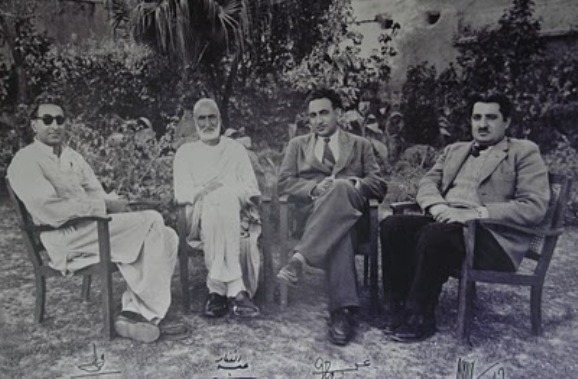ISLAMABAD: A report formulated by the Auditor General has said that Rs2.5 billion was lost in 2009-10 due to “commonly occurring irregularities” in various departments of the armed forces and ministry of defence.
The Auditor General Report 2009-10, which was submitted to parliament on Friday, said Rs801.06 million was lost due to violation of rules, Rs809.54 million due to unauthorised expenditures and Rs379.84 million due to non-recovery of dues. The irregularities were persistent in nature as they occurred almost every year.
The other major causes for the wastage were blockage of funds, unjustified payments and weak management of contracts, the report said.
It said the procurement departments of the defence production units and various arms of the armed forces, cantonment boards, the Military Estate Offices and the Military Engineering Services were particularly susceptible to “costly errors”. That was why procurement and execution of works required special attention.
The audit report said that Rs308.91 billion was supposed to be spent in 2008-09 as per the defence budget. But the expenses went up to Rs332.52 billion, mainly owing to revision in pay-scales and revision in the cost of rations for the army.
The total expenditure of the army, including irregular spending, totaled Rs734.08 million, which included unauthorised purchase of milk worth Rs679.03 million.
According to the report, the auditors objected to unauthorised works by Military Engineering Services, non-recovery of rent, utility bills and non-deduction of sales tax, causing a loss of Rs71.96 million. Similarly, Rs135.68 million collected on behalf of the government was not deposited in the treasury.
The auditors objected to mismanagement in the affairs of the Heavy Industries Taxila, particularly about the $1.23 million in foreign exchange stuck up due to problems in installation of simulators of Al Zarrar and Al Khalid tanks, said the report.
The Auditor General also identified serious flaws in contracts and deals finalised with foreign suppliers leading to foreign exchange losses, apart from non-recovery of money from defaulting contractors.
Irregularities were also identified in divisions like the Directorate of Munitions Production and Pakistan Aeronautical Complex, Kamra.
The auditors objected to the loss of Rs594.21 million in the navy owing to violations of rules, including irregular purchases and improper contracts.
The report said objections worth Rs99.83 million were raised against air force departments. These mainly pertained to irregular purchases and flawed construction contracts.
Ineffectiveness of the Military Accountant General caused a loss of Rs59 million and irregularities worth Rs82 million were reported in the affairs of the Military Lands and Customs department, the report said.
The Auditor General Report 2009-10, which was submitted to parliament on Friday, said Rs801.06 million was lost due to violation of rules, Rs809.54 million due to unauthorised expenditures and Rs379.84 million due to non-recovery of dues. The irregularities were persistent in nature as they occurred almost every year.
The other major causes for the wastage were blockage of funds, unjustified payments and weak management of contracts, the report said.
It said the procurement departments of the defence production units and various arms of the armed forces, cantonment boards, the Military Estate Offices and the Military Engineering Services were particularly susceptible to “costly errors”. That was why procurement and execution of works required special attention.
The audit report said that Rs308.91 billion was supposed to be spent in 2008-09 as per the defence budget. But the expenses went up to Rs332.52 billion, mainly owing to revision in pay-scales and revision in the cost of rations for the army.
The total expenditure of the army, including irregular spending, totaled Rs734.08 million, which included unauthorised purchase of milk worth Rs679.03 million.
According to the report, the auditors objected to unauthorised works by Military Engineering Services, non-recovery of rent, utility bills and non-deduction of sales tax, causing a loss of Rs71.96 million. Similarly, Rs135.68 million collected on behalf of the government was not deposited in the treasury.
The auditors objected to mismanagement in the affairs of the Heavy Industries Taxila, particularly about the $1.23 million in foreign exchange stuck up due to problems in installation of simulators of Al Zarrar and Al Khalid tanks, said the report.
The Auditor General also identified serious flaws in contracts and deals finalised with foreign suppliers leading to foreign exchange losses, apart from non-recovery of money from defaulting contractors.
Irregularities were also identified in divisions like the Directorate of Munitions Production and Pakistan Aeronautical Complex, Kamra.
The auditors objected to the loss of Rs594.21 million in the navy owing to violations of rules, including irregular purchases and improper contracts.
The report said objections worth Rs99.83 million were raised against air force departments. These mainly pertained to irregular purchases and flawed construction contracts.
Ineffectiveness of the Military Accountant General caused a loss of Rs59 million and irregularities worth Rs82 million were reported in the affairs of the Military Lands and Customs department, the report said.







 10:25 PM
10:25 PM
 Muhammad Zai Khan
Muhammad Zai Khan












